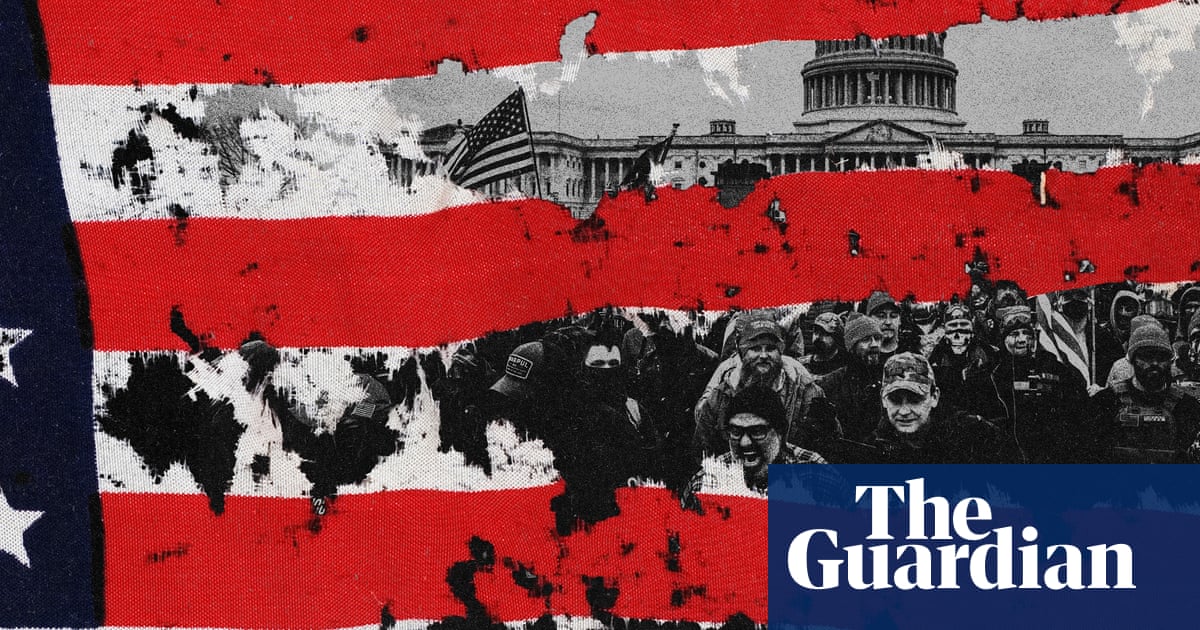Maze
吃瓜群众

Trump promised pardons for January 6 rioters in ‘first hour’ of his second term. What might this mean?
Observers raise alarm about how pardons for convicted Capitol attackers might weaken US criminal justice system
Observers raise alarm about how pardons for convicted Capitol attackers might weaken US criminal justice system
Mon 6 Jan 2025 08.00 EST
Share
As Donald Trump prepares to return to the White House, politicians, legal observers and even sitting federal judges are expressing alarm about his stated intention to pardon or offer commutations to supporters who attacked the US Capitol on 6 January 2021 and were then convicted of crimes.
Clemency for those who sought to block certification of Joe Biden’s 2020 election victory “would undermine the US judiciary and criminal justice system and send a message to Americans that attacking US democratic institutions is appropriate and justifiable”, said a spokesperson for the Society for the Rule of Law.
The group of conservative attorneys, academics, and former federal officials and judges also quoted sitting judges Royce Lamberth (“We cannot condone the normalization of the January 6 US Capitol riot”) and Carl Nichols, a Trump appointee who said “blanket pardons for all January 6 defendants or anything close would be beyond frustrating and disappointing”.
In December, while sentencing a member of the Oath Keepers militia who pleaded guilty to seditious conspiracy, the most serious charge brought in relation to January 6, the US district court judge Amit Mehta said: “The notion that Stewart Rhodes [the group’s leader, jailed for 18 years on the same charge] could be absolved is frightening and ought to be frightening to anyone who cares about democracy in this country.”
In ongoing January 6 cases, the Department of Justice continues to argue that “general deterrence may be the most compelling reason to impose a sentence of incarceration”, as “future would-be rioters must be deterred”.
Once, Trump would have agreed. On 7 January 2021, as the Capitol lay strewn with smashed glass and smeared with blood and feces, teargas lingering as troops stood guard, Trump faced historic disgrace. In a video address, he said supporters he told to “fight like hell” the day before had “defiled the seat of American democracy”, adding: “To those who engaged in the acts of violence and destruction, you do not represent our country. And to those who broke the law, you will pay.”
Many have indeed paid. According to the Department of Justice, by 6 December 2024, 1,572 January 6 defendants had been federally charged. Of those, 996 pleaded guilty to felonies or misdemeanors and 215 were found guilty after contested trials. Just under 600 were charged with assaulting, resisting or impeding law enforcement; 174 were charged with entering a restricted area with a dangerous or deadly weapon; and 18 were charged with seditious conspiracy. Some rioters were convicted but did not serve jail time; 645 were convicted and jailed. The most substantial jail sentences, for violent crimes or seditious conspiracy, range from 10 to 22 years.
But Trump did not pay for inciting January 6, escaping conviction in his Senate impeachment trial, and has long since changed his tune. On the campaign trail, he made the supposedly unjust fate of the rioters a key part of his stump speech. It would be his “great honor”, he said in Washington last May, “to pardon the peaceful January 6 protesters, or as I often call them, the hostages … a group of people treated so harshly or unfairly”.
Elsewhere, he called January 6 prisoners “patriots” and even characterized the day they smashed their way into Congress – some looking for lawmakers to capture or kill in a riot linked to nine deaths – as “a day of love”. At rallies, and at his Florida home as his return to power draws near, Trump has played a recording of January 6 prisoners singing the national anthem.
Despite it all, some think Trump has signaled that not all such offenders should expect pardons or commutations. In December, he told NBC “there may be some exceptions”, perhaps if “somebody was radical, crazy”. Some think that means Trump may not pardon those convicted of more serious charges, from assaulting police officers to seditious conspiracy.
But Trump is notoriously difficult to parse. In the same interview, the president-elect rambled about the supposed presence among rioters of “antifa” – leftwing activists widely blamed by rightwingers but absent from January 6 legal proceedings – and other conspiracy theories. Asked if he would consider pardoning those who pleaded guilty to assaulting police, he chose to dodge the question.
“I’m going to look at everything,” Trump said. “We’re going to look at individual cases.”
snip

